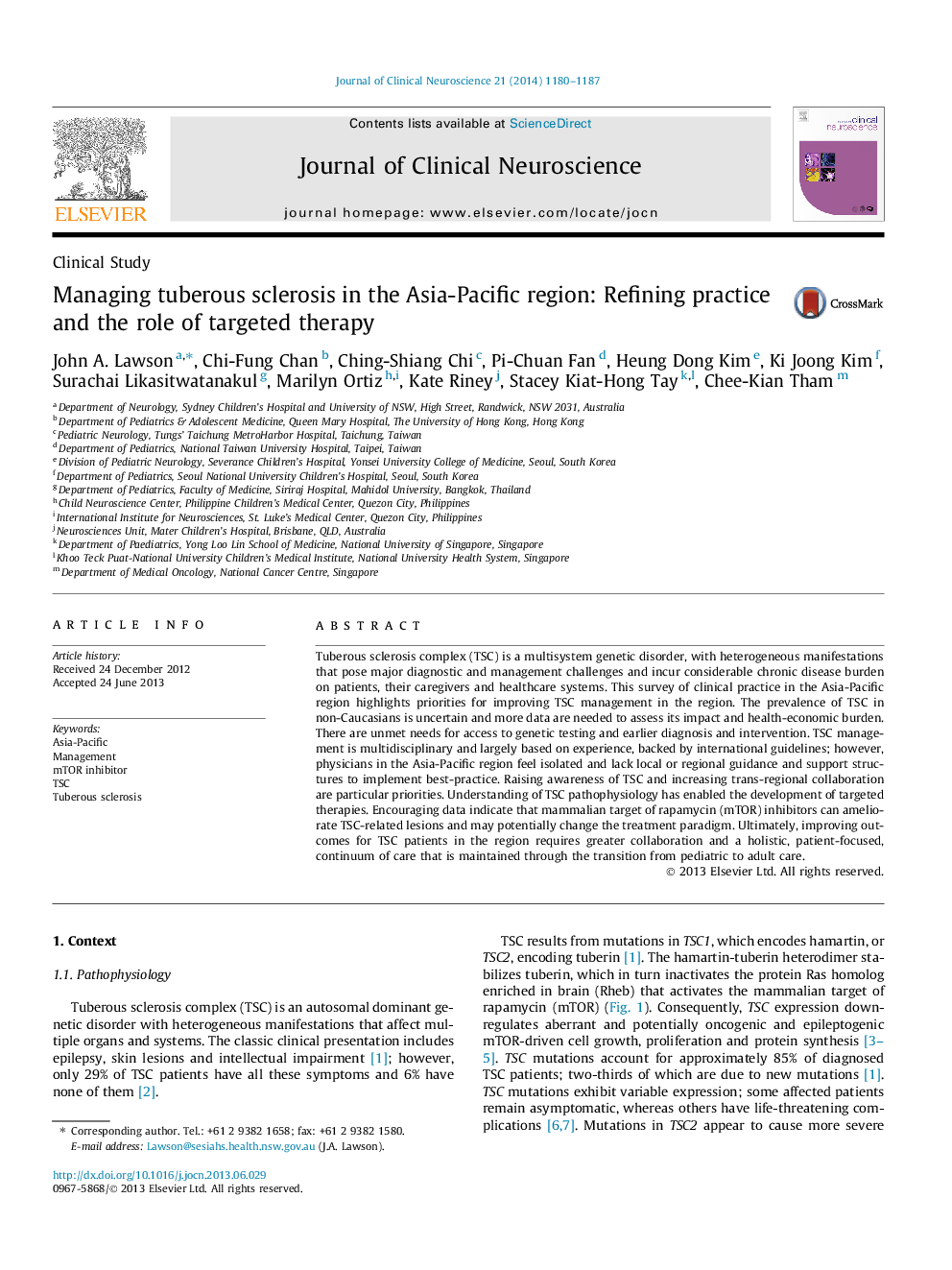| Article ID | Journal | Published Year | Pages | File Type |
|---|---|---|---|---|
| 6019772 | Journal of Clinical Neuroscience | 2014 | 8 Pages |
Abstract
Tuberous sclerosis complex (TSC) is a multisystem genetic disorder, with heterogeneous manifestations that pose major diagnostic and management challenges and incur considerable chronic disease burden on patients, their caregivers and healthcare systems. This survey of clinical practice in the Asia-Pacific region highlights priorities for improving TSC management in the region. The prevalence of TSC in non-Caucasians is uncertain and more data are needed to assess its impact and health-economic burden. There are unmet needs for access to genetic testing and earlier diagnosis and intervention. TSC management is multidisciplinary and largely based on experience, backed by international guidelines; however, physicians in the Asia-Pacific region feel isolated and lack local or regional guidance and support structures to implement best-practice. Raising awareness of TSC and increasing trans-regional collaboration are particular priorities. Understanding of TSC pathophysiology has enabled the development of targeted therapies. Encouraging data indicate that mammalian target of rapamycin (mTOR) inhibitors can ameliorate TSC-related lesions and may potentially change the treatment paradigm. Ultimately, improving outcomes for TSC patients in the region requires greater collaboration and a holistic, patient-focused, continuum of care that is maintained through the transition from pediatric to adult care.
Related Topics
Life Sciences
Neuroscience
Neurology
Authors
John A. Lawson, Chi-Fung Chan, Ching-Shiang Chi, Pi-Chuan Fan, Heung Dong Kim, Ki Joong Kim, Surachai Likasitwatanakul, Marilyn Ortiz, Kate Riney, Stacey Kiat-Hong Tay, Chee-Kian Tham,
